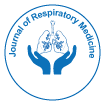当社グループは 3,000 以上の世界的なカンファレンスシリーズ 米国、ヨーロッパ、世界中で毎年イベントが開催されます。 1,000 のより科学的な学会からの支援を受けたアジア および 700 以上の オープン アクセスを発行ジャーナルには 50,000 人以上の著名人が掲載されており、科学者が編集委員として名高い
。オープンアクセスジャーナルはより多くの読者と引用を獲得
700 ジャーナル と 15,000,000 人の読者 各ジャーナルは 25,000 人以上の読者を獲得
抽象的な
The Role of Caffeine and Doxapram for Respiratory Care in Preterm Infants: A Clinical Review
Friedrich Reiterer
This review describes the clinical role of caffeine and doxapram as respiratory stimulants for preterm infants. Based on the current evidence caffeine citrate is the preferred drug for treatment of apnea of prematurity (AOP) and for the prevention of post-extubation respiratory failure in preterm infants. It has favorable short-and long-term effects including a reduced incidence of patient ductus arteriosus, bronchopulmonary dysplasia and improvements in neurodevelopmental outcome. Caffeine citrate is safe with currently recommended dosing, but further studies are warranted regarding the safety of caffeine when used immediately after birth and with high-dosing regimens. Doxapram has also been shown to be effective in the treatment of AOP and to reduce the need for intubation. Because of concerns about serious side effects it was less frequently used in the past. Despite encouraging results from recent studies, based on the limited number of large, randomized, controlled studies, doxapram is still not recommended for routine respiratory support in the NICU. It is a third-line or rescue therapy for preterm infants with severe AOP unresponsive to caffeine and NIV.

 English
English  Spanish
Spanish  Chinese
Chinese  Russian
Russian  German
German  French
French  Portuguese
Portuguese  Hindi
Hindi